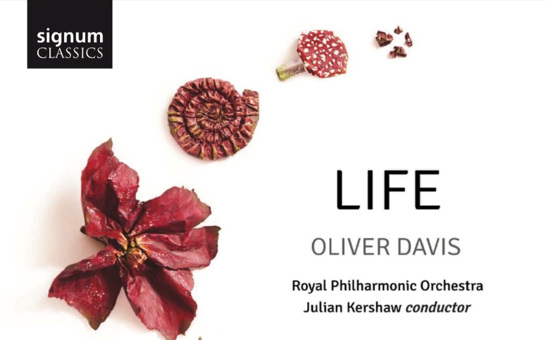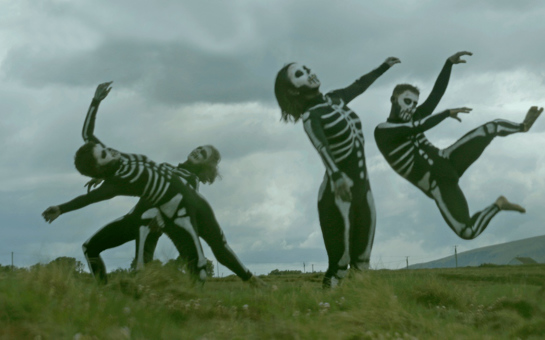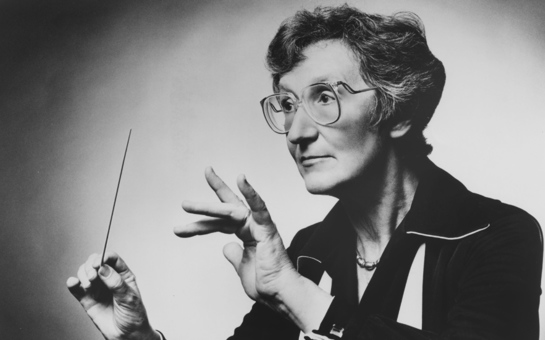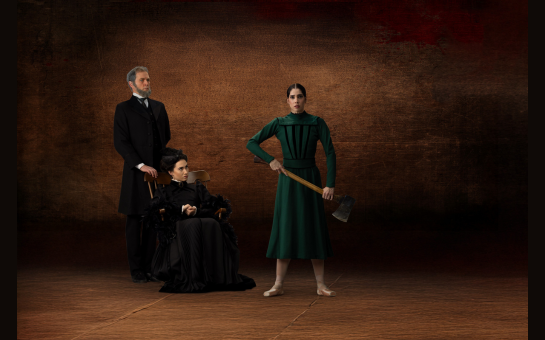‘SOLACE is a truly international album created during the 2020 lockdown. It involved working collaboratively, yet remotely, with soloists, ensembles and authors from all over the world. A year in the making resulting in a really unique project.’ – Oliver Davis
On Friday March 5 2020, SOLACE, the latest album from British composer Oliver Davis is released on Signum Records. Davis has parlayed a long record as a composer of film and television scores into a successful career as a composer of orchestral music. He is also an active composer of ballet – most recently premiering Lineage with choreographer Edwaard Liang at New York City Ballet’s prestigious Fall Fashion Gala.
Recorded at the height of the international Covid lockdown, Oliver Davis’ sixth album, SOLACE, is a feat of both technological as well as artistic achievement. He explains how creating SOLACE differed significantly from the production of his other recordings: ‘I had originally planned the production of my sixth album in a similar way to previous albums, a method that had to be abandoned when social restrictions were enforced at the onset of the pandemic.
In addition to amending the production process, most of the repertoire I had originally planned to record was also going to need to be replaced owing to key artists and studios unable to be involved. It presented a huge logistical and creative problem, but also an interesting challenge. Would it be possible to create an album, largely orchestral based, without being in the same room as the orchestra and conductor? The only way this could be achieved was by recording the orchestra and many of the soloists remotely. During the lockdown period I had briefly worked remotely with the Budapest Scoring Orchestra, and that experience gave me the confidence to tackle this project.
I decided to create a template by recording all the principal elements first. I recorded all the key orchestral parts individually with five musicians and this enabled me to have enough control of these parts to then create a master chamber music version of all the orchestral pieces on the album. I then mapped out the exact tempos and dynamics in the orchestral scores and only then did I record the Budapest Scoring Orchestra on top of this chamber recording. In addition, many of the pieces were written for soloists who were based abroad and were now unable to visit the UK as planned. I therefore had to record their parts remotely and incorporate those recordings into the mix. I achieved this using the internet and recording studios and engineers all over the world, recording a violinist in Los Angeles, a piano duo in The Netherlands, a guitarist in Argentina and the Budapest Scoring Orchestra conducted by Péter Illényi in Budapest.
This painstaking process became a labour of love and has led me to appreciate the many benefits of being in the same room as the artist!’
Davis’ music lends itself well for use in dance projects. He is an active composer of ballet music and this new album includes Narcissus and Echo which has been choreographed by Vitor Luiz and directed by Sophia Kiapos for film. The dancers are Vitor Luiz and Tara Ghassemieh with cinematography by J Garrett Vorreuter and Sophia Kiapos, edited by J Garrett Vorreuter, Caitlan Deibel and Sophia Kiapos and words by Simon Littlefield (sung by Grace Davidson, Benedict Moriarty and Sam Brophy).
Watch Oliver Davis talking about working in Dance
Davis’ previous albums have reached the top 10 on both iTunes Classical and UK Specialist Classical Charts multiple times, receiving numerous five-star reviews and well over a million streams on Apple Music.
Listen to the full album on Spotify
More about the album
The opening piece, Clarity, is written for four solo violins and string orchestra. Two of the soloists create an echoing rhythmic arpeggio and the other solo and orchestral elements comprise the melodic and harmonic material respectively. The solo parts are performed here by Kerenza Peacock and Jonathan Hill.
Solace was originally composed as part of a larger-scale work for solo violin and orchestra, which choreographer Edwaard Liang used to create ‘Lineage’, a ballet premiered by New York City Ballet in the Fall Fashion Gala 2019. I singled out this particular movement as I felt it suited the mood of this project. The solo violin part, performed by Jonathan Hill, was played on an 1846 Pierre Silvestre kindly lent by Sean Bishop at Bishop Strings.
Writer John Delaney and I collaborated on an operatic project based on the Irish mythological tale of Tir na Nog. This mortal man was written from the perspective of the goddess Niamh who has fallen in love with earthling Oisin, whom she wishes to marry, against the wishes of the gods. The song is arranged for soprano, harp and strings and is sung by Grace Davidson.
I wrote the music for what became Narcissus and Echo many years before the lyrics were added. I gave the piece in its original form to lyricist Simon Littlefield with the brief of finding an appropriate theme and fitting words to the existing melody. His idea of setting it to the story of Narcissus and Echo instantly transformed the piece into a new song, sung here by Grace Davidson with accompaniment from trebles Sam Brophy and Benedict Moriarty.
Equinox is a two-movement work for solo violin and strings written for Kerenza Peacock. In the first movement I wanted to create an almost motionless feel in the string accompaniment, over which I wrote a ‘floating’ violin melody. The string accompaniment develops into a triplet arpeggiated figure, reaching its climax with an accompanying cello solo performed by Katherine Jenkinson. The second movement opens with just the solo chamber group I originally recorded for this album. Only after the introduction does the full string orchestra join, in what becomes a joyous conclusion to the piece.
Last year I was introduced via social media to Argentinian guitarist Sergio Puccini. He asked whether I had written anything for classical guitar and the only piece I had to present was a one-minute sketch written several years earlier. Upon hearing it he asked if it could be expanded and so the work matured into a three movement guitar concerto. Initially it was conceived as a work for two guitars and orchestra but I then altered the arrangement changing the second guitar part into a harp part which is performed here by harpist Oliver Wass. Sergio recorded the solo part remotely in Rosario, Argentina.
In March 2020 I composed a short rhythmic sketch for two pianos. I started to research piano duos online and discovered Beth & Flo, a piano duo with a theatrical edge to their performances. There was a great feeling of synchronicity between these pianists which made them ideally suited to my style of writing. I decided to develop the sketch into a three movement work for them, titled Kaleidoscope. Beth & Flo (Elsbet Remijn and Claudette Verhulst) recorded the piece on two Steinway D pianos at the Power Sound Studio, Amsterdam.
Simon Littlefield wrote the poem Sun stands still in June 2020. On reading it I could immediately see it working well as a song for treble and piano. I recorded a guide vocal and sent the song to the Hi Lo Singers agency. They suggested we record treble Benedict Moriarty, who appears on this recording accompanied by myself on piano.
I had been in touch with cellist Katherine Jenkinson in March 2020 and she described her and her cellist husband’s growing frustration at not being able to perform during the lockdown period. I decided to write them a duet purely as something they could play together during this strange time. In the slow movement I wrote a ‘drone’ in the cello 1 part over which the cello 2 part plays the melody; this ‘drone’ gave the movement a slightly Scottish feel and reminded me of the beautiful Island of Bute which I’d recently visited. Bute Cello Duets seemed the obvious title for the piece.
After he’d written the words for Narcissus and Echo I asked Simon Littlefield whether he would write a larger-scale poem, again based on a mythological tale. After some research Simon settled on Eros and Psyche. He managed to tell the epic story across four poems which I then scored in chronological order. I wrote this song cycle with soprano Grace Davidson in mind, in the knowledge that she could multi-track her voice in the studio. The songs are written and arranged in such a way that the soprano sings as a narrator as opposed to singing from the perspective of the characters depicted in the story. It is scored for sopranos and orchestra, joined by harpist Oliver Wass and pianist Huw Watkins.
Save Me was originally a piano piece that I gave to songwriter and pianist Christina Alexopoulou, asking her to write a lyric to the melody. One of her ideas for the chorus started with ‘Save Me’ which immediately felt right and gave the song its title. Having set her lyrics I recorded a guide vocal myself with the intention of locating the right singer for it at a later date. To my surprise, on hearing the song co-producer Emma Heathcote immediately responded with ‘keep the voice’. This sentiment was echoed by others and so it has remained on the recording.
© Oliver Davis
About Oliver Davis
Oliver Davis graduated from the Royal Academy of Music in 1994 and has since established himself as a preeminent composer for ballet, film & TV, and the concert hall. His albums on Signum Records have consistently charted highly in the UK Classical Charts and achieved regular airplay, notably on Classic FM and New York radio station WQXR.
Davis released his debut album ‘Flight’, recorded by the London Symphony Orchestra and soloist Kerenza Peacock, in March 2015 to critical acclaim. Since then, he has released four more albums on Signum Records: ‘Seasons’ (October 2015), which included Anno, Davis’ contemporary take on Vivaldi’s Quattro Stagioni; ‘Dance (2016)’, ‘Liberty’ (2018) and 'Arcadia' (2019), all recorded by the Royal Philharmonic Orchestra. Many of these albums have been Featured Album of the Week on Classic FM.
Davis’ compositions are in high demand in the ballet world, featuring on the international stage with renowned ballet companies such as New York City Ballet, San Francisco Ballet, Joffrey Ballet Chicago, Pacific Northwest Ballet, Birmingham Royal Ballet, at prestigious venues including Washington DC’s Kennedy Center, and London’s Sadler’s Wells and the Royal Opera House’s Linbury Studio.
Since 2017, Davis has collaborated numerous times with prolific choreographer and Ballet Met Artistic Director Edwaard Liang. The Infinite Ocean, their first work together, premiered at San Francisco Ballet’s Unbound Festival in April 2018 with a specially commissioned score by Davis. ‘Constant Light’ was their next collaboration, for Ballet West in Salt Lake City, Utah. In September 2019, they premiered a new work at New York City Ballet’s prestigious Fall Fashion Gala, which featured costumes designed by fashion icon Anna Sui. Davis and Laing are currently collaborating on a new work to be premiered by Pacific Northwest Ballet.





